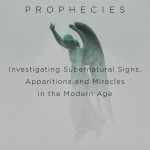I confess, after excitedly looking forward to HBO’s presentation, I am a little disappointed. Not tremendously so, because I knew the book could never translate perfectly to the screen, but…yeah, disappointed.
I had thought Paul Giamatti – an actor I admire a lot – would be the perfect John Adams, but it seems to me he has not managed to get inside him. Adams was a man with a temper, a tendency toward vanity and stubbornness, it’s true, but he also seems to have had boundless energy, a liking for talk and company and a genuine sense of humor, all of which seems lacking, here. Also, when Adams is passionate and inspiring, Giamatti is only shrill. He seems dreadfully uncomfortable, almost all the time. I never forget that I am watching a 21st century actor playing an 18th century man.
Laura Linney as Abigail is a bit better, although she too seems to miss Abigail’s bright humor. I suspect the film wants to impress us with Abigail’s undeniable wisdom, but too often she comes off as merely grave.
Worse, I am a little disturbed by the film’s fascination with Charles Adams to the exclusion of John Quincy. While McCullough paints Charles as a true scamp, he also drew lovely characters of Nabby Adams and John Quincy. Repeatedly it is only Charles who shows curiosity, courage, passion or liveliness in this film, and I have to wonder if the viewer is being set up, there, for a later indictment that Charles became a drunkard – which pained his parents profoundly – because John Adams did not appreciate him enough in his childhood. While it is true that Adams was often gone for long periods of time, he also wrote specifically of Charles, “I love him too much.” I don’t like being so obviously set-up to think ill of Adams down the road.
The sets and scenes are terrific, although the production seems a little CGI happy and it shows, particularly in an early scene were Adams goes to the Boston gaol to meet with British soldiers and we see shipmasts so perfectly fitted behind the wall as to be distracting. More distractingly, the director Tom Hooper sometimes makes me seasick with his tilted camera. For some reason he has chosen to shoot some scenes at such an angle (think Batman in the 1960’s) that one must tilt one’s head to get back into the frame and the story. Hooper seems to be one of those “look Ma, I’m directing!” sorts who wants to be artsy when it really doesn’t help. When watching Ben Franklin clue Adams in to the nuances and niceties of political give-and-take, we had to do it peering through the shadows of ceiling spindles and dusty windows, or over the sides of large benches. In part I, before Adams is introduced to his neighbors as a delegate to the congress, we see him seated in a pew, barely tall enough to peer over its edge. We get it, we get it, is the man big enough for the job? Please just tell us the story and save us your arcane visual metaphors, Mr. Director!
Tom Wilkinson is note-perfect as Franklin and he’s clearly relishing the role. David Morse, once you get past the distracting foam nose, is Washington precisely as we have come to know him; soft spoken, commanding, gentlemanly and rather hauntingly aware of all that is before him. Whenever either of them are on screen, the whole enterprise has a different, more alive feel.
But this is not a pan. I am enjoying the series. Zeljko Ivanek is wonderfully moving as the Quaker, John Dickinson, Adam’s most fierce opponent in Congress. I love watching a rather droll John Hancock keep competing egos and interests in order; the passing of the Declaration of Independence was fascinatingly quiet in light of the great noise the action has had upon history.
I just wish William Daniels’ John Adams, in the musical 1776, hadn’t spoiled me for Paul Giamatti. One of the reasons I loved David McCullough’s book so much was because it finally seemed to bring Adams out from between the overwhelming (and tall) towers of Washington and Jefferson. Without a strong actor to bring him forth, Adams – sadly – ultimately gets left in the shadows again.
Beldar notes that Washington, Jefferson and Franklin were far less quirky and far easier to lionize into legends than the complicated Adams. That is probably true. He loves the series, and you’ll enjoy his review.
Ann Althouse has more.
Tom Shales gives the Tom Hanks-produced series a predictable rave. I rather wish Stephen Harper had reviewed for the WaPo.
In the NY Times Allessandra Stanley feels much as I do, particularly about Giamatti and Daniels.











